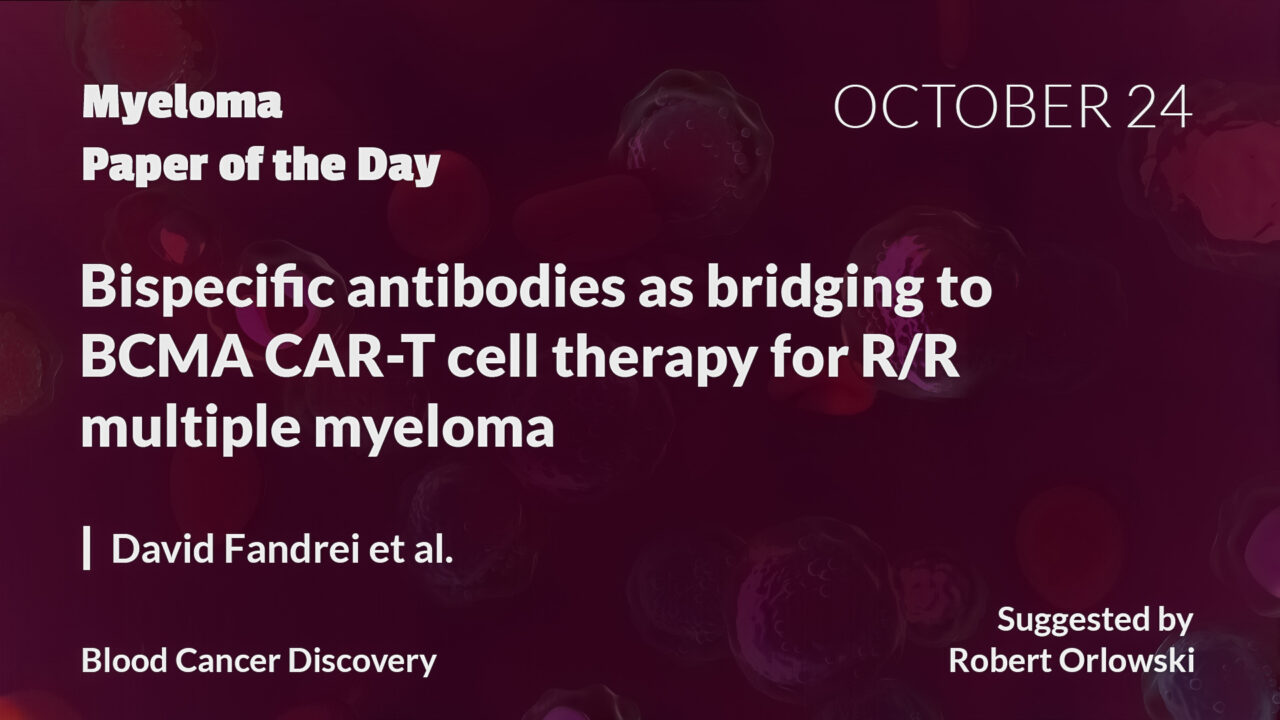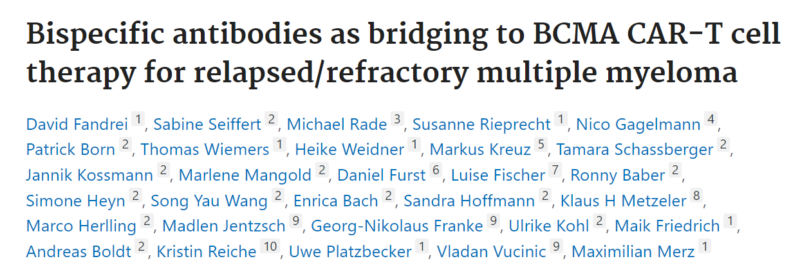
Myeloma Paper of the Day, October 24th, suggested by Robert Orlowski
Robert Orlowski shared on X:
“Paper of the Day: Bispecific antibodies as bridging to BCMA CAR-T cell therapy for relapsed/refractory myeloma achieve higher response rates (100% in 52 patients) vs. other options and increase clonality in the CD4+ and CD8+ T cell post_CAR T.”
Authors: David Fandrei, Sabine Seiffert, Michael Rade, Susanne Rieprecht, Nico Gagelmann, Patrick Born, Thomas Wiemers, Heike Weidner, Markus Kreuz, Tamara Schassberger, Jannik Kossmann, Marlene Mangold, Daniel Furst, Luise Fischer, Ronny Baber, Simone , Song Yau Wang, Enrica Bach, Sandra Hoffmann, Klaus H Metzeler, Marco Herlling, Madlen Jentzsch, Georg-Nikolaus Franke, Ulrike Kohl, Maik Friedrich, Andreas Boldt, Kristin Reiche, Uwe Platzbecker, Vladan Vucinic, Maximilian Merz

Other posts featuring Robert Orlowski on OncoDaily.
Robert Orlowski, M.D., Ph.D., holds multiple positions at The University of Texas, MD Anderson Cancer Center including Chairman, Ad Interim Director of Myeloma, and Professor of Medicine in the Departments of Lymphoma/Myeloma and Experimental Therapeutics within the Division of Cancer Medicine.Additionally, he chairs the SWOG Barlogie/Salmon Myeloma Committee, which is part of the National Clinical Trials Network, dedicated to advancing new therapies and understanding the biology of myeloma.
Dr. Orlowski’s expertise lies in both clinical practice and scientific research, with a particular focus on translating laboratory discoveries into effective treatments for patients. He investigates drug resistance mechanisms in myeloma and seeks to identify predictive biomarkers for treatment response.Notably, his past contributions include leadership roles in developing proteasome inhibitors like bortezomib and carfilzomib, as well as monoclonal antibodies such as daratumumab and elotuzumab.
-
Challenging the Status Quo in Colorectal Cancer 2024
December 6-8, 2024
-
ESMO 2024 Congress
September 13-17, 2024
-
ASCO Annual Meeting
May 30 - June 4, 2024
-
Yvonne Award 2024
May 31, 2024
-
OncoThon 2024, Online
Feb. 15, 2024
-
Global Summit on War & Cancer 2023, Online
Dec. 14-16, 2023
